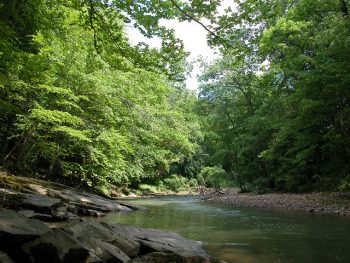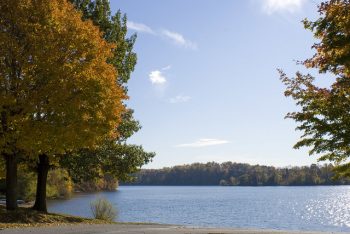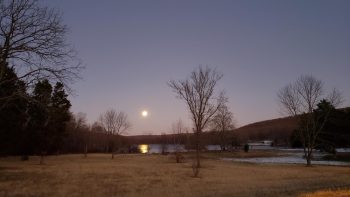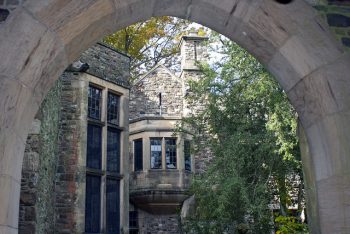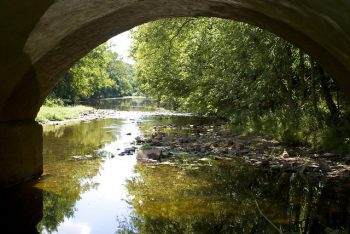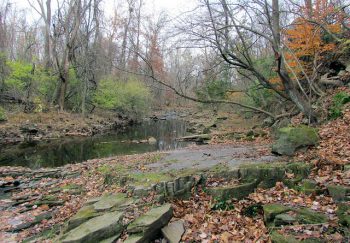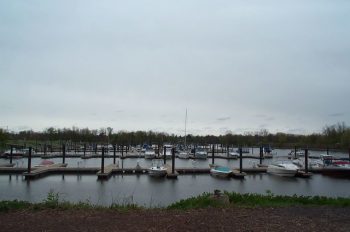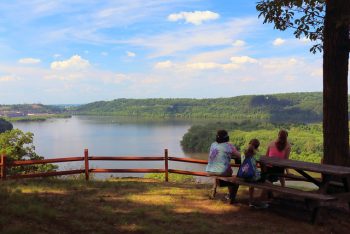By Denny Dyroff, Entertainment Editor, The Times
The COVID-19 pandemic is still going strong which means the best thing is to still “shelter in place” and stay home except for necessary trips outside the home such as getting food and medicine (and, yes, liquor).
However, the arrival of hot summer-like weather is providing a severe challenge to those who are going “stir crazy.” Chester County and its surrounding counties have moved from “red” to “yellow” and, fortunately, there are many outdoor activities which are relatively safe as long as government guidelines are followed.
Many will be pleased to know that the Pennsylvania Department of Conservation and Natural Resources (DCNR) announced the reopening of state parks and forest facilities in southeast and northeast Pennsylvania in line with Governor Tom Wolf’s direction to ensure Pennsylvanians have opportunities to safely enjoy outdoor recreation and help maintain positive physical and mental health.
Facilities in 19 state parks will be reopening as the following counties move from the red to yellow phases including Chester, Lancaster, Berks, Delaware, Montgomery, Bucks and Philadelphia. Some pools in yellow phase and green phase counties will reopen on June 13.
Facilities such as cabins, cottages, lodges, and yurts will be opening statewide on June 12. In all DCNR facilities, additional cleaning protocols are in place to help protect park and forest visitors. All picnic pavilion reservations, playgrounds, nature play areas, interpretive centers, amphitheaters, and group camping facilities statewide will remain closed in yellow areas.
People are advised not to travel long distances for outdoor recreation, and instead should look for opportunities close to home. Pennsylvania has 6,000 local parks and more than 12,000 miles of trails available (check first to make sure they are open, as some local parks are closed).
Visitors can help keep state parks and forest lands safe by following these practices:
Avoid crowded parking lots and trailheads
Bring a bag and either carry out your trash or dispose of it properly
Clean up after pets
Avoid activities that put you at greater risk of injury, so you don’t require a trip to the emergency room
To help avoid exposure to COVID-19 and protect others, and still enjoy the outdoors:
Don’t hike or recreate in groups – go with those under the same roof, and adhere to social distancing (stay 6 feet apart)
Wear a mask
Take hand sanitizer with you and use it regularly
Avoid touching your face, eyes, and nose
Cover your nose and mouth when coughing and sneezing with a tissue or flexed elbow
If you are sick, stay home.
Additionally, the Pennsylvania DCNR has issued this statement:
Warning: The spotted lanternfly has invaded our area. This invasive insect could cause serious harm to Pennsylvania’s resources, businesses, and economy. LOOK BEFORE YOU LEAVE! Help us stop the spread of these unwelcome hitchhikers. Inspect your vehicle, camper, tent, gear, etc. before you leave the park and destroy any lanternflies you find. For more information, visit the Penn State Extension’s Spotted Lanternfly website.
Pennsylvania has 121 state parks, and 20 forest districts. Fortunately, there are quite a few attractive state parks located in Chester, Delaware, Lancaster, Bucks and Berks County.
In Chester County, there are White Clay Creek State Preserve and Marsh Creek State Park.
White Clay Creek Preserve (405 Sharpless Road, Landenberg, https://www.dcnr.pa.gov/StateParks/FindAPark/WhiteClayCreekPreserve/Pages/default.aspx).
The 2,072-acre White Clay Creek Preserve is in southern Chester County, three miles north of Newark, Delaware. The White Clay Creek Valley, which forms the core of the preserve, varies from steep to gradually falling terrain with some flat bottomlands, all drained by the creek. White Clay Creek Preserve shares boundary with White Clay Creek State Park of Delaware.
Because White Clay Creek has outstanding scenic, wildlife, recreational, and cultural value, it has been designated by Congress as a National Wild and Scenic River, and shall be preserved in free-flowing condition for the benefit and enjoyment of present and future generations.
White Clay Creek Preserve is managed for low-intensity recreational day use activities throughout the year. Day use areas close at dusk.
Marsh Creek State Park (675 Park Road, Downingtown, https://www.dcnr.pa.gov/StateParks/FindAPark/MarshCreekStatePark/Pages/default.aspx) is in the rolling hills of north central Chester County. The 1,784-acre park contains the 535-acre Marsh Creek Lake, which is a wonderful resource for fishing, sailing, and migrating waterfowl. The park is open every day of the year, sunrise to sunset. Day use areas close at dusk.
Please be advised that Marsh Creek State Park often reaches parking capacity on busy weekends throughout the summer months. When this occurs, the park is closed temporarily to vehicles. Vehicles are rerouted outside the park until the park is able to open to vehicular traffic once again. Please call the park office with questions at 610-458-5119.
Not far from Marsh Creek State Park is French Creek State Park (843 Park Road, Elverson, https://www.dcnr.pa.gov/StateParks/FindAPark/FrenchCreekStatePark/Pages/default.aspx)
Once an industrial complex for the fledgling United States of America, today French Creek State Park is an oasis for people and wildlife. Straddling the Schuylkill Highlands, the 7,730-acre park is the largest block of contiguous forest between Washington D.C. and New York City.
The forests, lakes, wetlands, and fields are a destination for the people of southeast Pennsylvania to hike, fish, camp, and bike. Those same habitats are homes to many animals and plants that are rare in this corner of the commonwealth.
French Creek State Park is an “Important Bird Area” as designated by the National Audubon Society, and an “Important Mammal Area” as designated by the Pennsylvania Game Commission. Pine Swamp is a State Park Natural Area.
The park is open every day of the year, sunrise to sunset. Day use areas close at dusk.
Just east of Chester County is Ridley Creek State Park (1023 Sycamore Mills Road, Media, https://www.dcnr.pa.gov/StateParks/FindAPark/RidleyCreekStatePark/Pages/default.aspx).
Ridley Creek State Park encompasses more than 2,606 acres of Delaware County woodlands and meadows. The gently rolling terrain of the park, bisected by Ridley Creek, is only 16 miles from center city Philadelphia and is an oasis of open space in a growing urban area.
The park is open every day of the year, sunrise to sunset, including the restrooms in picnic area #7 and #17. Day use areas close at dusk. The park office is open specific hours. Contact the park office for facility seasons and hours.
Ridley Creek State Park is also home to the Colonial Pennsylvania Plantation (3900 North Sandy Flash Drive, Newtown Square, http://www.colonialplantation.org/).
The Colonial Pennsylvania Plantation is an authentic living history site with the purpose of enhancing understanding of 1760-90 farm life in Southeastern Pennsylvania by providing high quality, research-based experiences to the public.
Astride Ridley Creek in Edgemont, the 112 acres of the Colonial Pennsylvania Plantation provide the context of early American history, the setting where the impact of King George’s taxes was felt, the American melting pot began to simmer, and American ingenuity took root.
The Plantation is scheduled to reopen on June 15.
There are state parks located in nearby Montgomery County – Evansburg State Park, Fort Washington State Park, and Norristown Farm State Park.
Evansburg State Park (851 May Hall Road, Collegeville, https://www.dcnr.pa.gov/StateParks/FindAPark/EvansburgStatePark/Pages/default.aspx) is in southcentral Montgomery County between Norristown and Collegeville. Evansburg offers a significant area of green space and relative solitude in an urbanized area.
Its main natural feature, the Skippack Creek, has dissected the land into ridges and valleys that create feelings of enclosures and provide scenic views.
The first European settlers were Mennonite farmers who powered their industries with the water of the Skippack. Even now, mill remnants, mill buildings, and houses from the eighteenth and nineteenth century dot the park landscape and serve as reminders of early American life.
Today, the park is a quilt work of cropland, meadows, old fields, and mature woodlands that attracts day use visitors from the Montgomery County and Philadelphia areas.
People come to the open play fields, picnic areas, trails, golf course, and the relatively tranquil, natural environment. The park is open every day of the year, sunrise to sunset. Day use areas close at dusk.
Fort Washington State Park (500 South Bethlehem Pike, Fort Washington, https://www.dcnr.pa.gov/StateParks/FindAPark/FortWashingtonStatePark/Pages/default.aspx) is rich in modern recreational facilities and historical significance.
Fort Washington State Park consists of 493 acres in eastern Montgomery County. It takes its name from the temporary fort built by George Washington’s troops in the fall of 1777, before heading to Valley Forge.
The park is popular with hikers and picnickers. Birders enjoy the seasonal migration of raptors from the Observation Deck. The park is open every day of the year, sunrise to sunset.
Norristown Farm Park (2500 Upper Farm Road, Norristown, https://www.dcnr.pa.gov/StateParks/FindAPark/NorristownFarmPark/Pages/default.aspx) is one of the most unique parks in the Pennsylvania state park system.
Norristown Farm Park is a working farm in continuous use since colonial times. The 690-acre park is home to: 71 species of wildlife, fish, reptiles, and amphibians; 173 species of birds; 89 species of trees; and 216 species of wildflowers.
There are 15 historic buildings on the property (the earliest dating from 1764) as well as hiking trails, a trout nursery, picnic areas, separate forest areas of mixed oak and other deciduous trees, flood plain, old farm fields, working fields, wetlands, and two streams.
One of the last undeveloped areas in Montgomery County, Norristown Farm Park is actively farmed. Sitting quietly in the middle of a population of more than 65,000 people, 80 percent of the park is dedicated to growing farm crops.
Bucks County is home to four state parks — Neshaminy State Park, Nockamixon State Park, Tyler State Park and Washington Crossing State Park.
Neshaminy State Park (3401 State Road, Bensalem, https://www.dcnr.pa.gov/StateParks/FindAPark/NeshaminyStatePark/Pages/default.aspx Park) is located along the Delaware River in lower Bucks County. The park takes its name from Neshaminy Creek, which joins the Delaware River at this point.
The park’s 339 acres include picnic areas, a swimming pool, and a separate children’s spray park. Boating access to the Delaware River is provided at the marina.
The park is open every day of the year, from 8:00 A.M. to sunset. See park bulletin boards for specific closing times.
Nockamixon State Park (1542 Mountain View Drive, Quakertown, https://www.dcnr.pa.gov/StateParks/FindAPark/NockamixonStatePark/Pages/default.aspx) is a 5,286-acre park in the rolling hills of scenic Bucks County.
Tohickon Creek, Three Mile Run, and Haycock Run feed the 1,450-acre Lake Nockamixon, which is a rest stop for migrating waterfowl and a destination for boaters and anglers.
Visitors can stay the night in a cabin or enjoy the many activities of the park for the day. Popular activities are picnicking, swimming in the pool, hiking, biking, disc golfing, hunting, fishing, and boating.
The Disc Golf Course is currently closed because of hundreds of hazardous trees on the course caused by the Emerald Ash Borer.
The park is open every day of the year, sunrise to sunset. Day use areas close at dusk. Fishing and boating is permitted 24 hours-a-day in designated areas.
Washington Crossing Historic Park (1112 River Road, Washington Crossing, https://www.dcnr.pa.gov/StateParks/FindAPark/WashingtonCrossingHistoricPark/Pages/default.aspx
Washington Crossing Historic Park preserves the site of George Washington’s dramatic boat crossing of the Delaware River during the American Revolution and is a National Historic Landmark.
The Upper Section of the park has historic buildings, walking paths, picnic pavilions, fishing, and historical and environmental education programs. The Lower Section of the park has historic buildings, walking paths, picnicking, picnic pavilions, fishing, non-motorized boat launching, outdoor recreation programs, historical and environmental education programs, and hosts special events and re-enactments.
The 125-foot Bowman’s Hill Tower, located in the Upper Section off of Lurgan Road, provides a fabulous view of the Delaware River Valley. An entry fee is charged. The tower closes for the winter season.
Parts of the park are operated by the Friends of Washington Crossing and may charge a fee. Other parts of the park are free and open sunrise to sunset. Nearby Bowman’s Hill Wildflower Preserve Opens showcases the extraordinary diversity of plants native to Pennsylvania. An entrance fee is charged.
Washington Crossing Historic Park is open every day of the year, sunrise to sunset. Day use areas close at dusk. The visitor center and historic building tours are available to the public during specific hours. Contact the park office for facility seasons and hours.
Tyler State Park (101 Swamp Road, Newtown, https://www.dcnr.pa.gov/StateParks/FindAPark/TylerStatePark/Pages/default.aspx) is located 33 miles from Center City Philadelphia and consists of 1,711 acres in Bucks County. Park roads, trails, and facilities are carefully nestled within the original farm and woodland setting. Neshaminy Creek meanders through the park, dividing the land into several interesting sections.
The park is open every day of the year, sunrise to sunset. Day use areas close at dusk. The park office is open specific hours. Contact the park office for facility seasons and hours.
Head west to Lancaster County and you’ll find Susquehannock State Park (1880 Park Drive, Drumore, https://www.dcnr.pa.gov/StateParks/FindAPark/SusquehannockStatePark/Pages/default.aspx). Four properties along the scenic Lower Susquehanna River comprise the Susquehannock State Park Complex.
The 224-acre Susquehannock State Park is on a wooded plateau overlooking the Susquehanna River in southern Lancaster County. In addition to the outstanding view, the park offers a variety of recreational opportunities for year-round fun.
The park is open every day of the year, sunrise to sunset. Day use areas close at dusk.
In Lancaster County, more great places to get close to nature are provided by the Lancaster County Conservancy (https://www.lancasterconservancy.org/preserves/).
The Lancaster County Conservancy protects more than 2,900 acres of land for the health of the ecosystem and the enjoyment of the public. Nine of these nature preserves are highlighted below, including what is quite possibly the premiere natural area in Lancaster County — Tucquan Glen.
The closest to Chester County is the Octoraro Creek Nature Preserve (https://www.lancasterconservancy.org/preserves/octoraro-creek/).
The Octoraro Creek Nature Preserve primarily serves as the tree and shrub lined buffer for the Octoraro Creek. From the water there is very little disturbance of the creek’s wild and scenic nature. Wildlife abounds with regular sightings of otter, kingfisher, bald eagles and osprey.
Eel and shad still migrate up the Octoraro Creek from the Atlantic Ocean because there are no dams on the lower section of the creek. Octoraro Creek empties directly into the Susquehanna River in Maryland.
The Conservancy acquired this land in 2008 with funding from the PA Department of Conservation and Natural Resources, the Natural Lands Preservation Fund of Lancaster County, and the 1675 Foundation.
Tucquan Glen Nature Preserve (https://www.lancasterconservancy.org/preserves/tucquan-glen-pyfer/) is quite possibly the premiere natural area in Lancaster County — the most attractive and perhaps the most pristine of the seven ravines or glens which open into the Susquehanna River in this area.
The Susquehanna River is a “Wild and Scenic River,” lush and green in spring and summer, colorful in autumn, and beautiful all year round with extensive rhododendron thickets and more than 40 species of trees. In its middle section, the stream rushes headlong into huge boulders and through narrow crevices.
Two differently colored blazed trails provide a loop within the preserve. Both trails are strenuous with short sections of relief across floodplains. A lesser-used trail, blazed white, climbs into groves of large, mature canopy trees and connects with the Conestoga Trail which provides access back into the glen by hiking south.
A section of the Conestoga Trail traverses the preserves and captures some of the best highlights of the preserves including waterfalls and rock outcrop vistas and provides seldom used access from Reed Run Nature Preserve (by hiking south) and Pinnacle Overlook Nature Preserve (by hiking north).
Ferncliff Wildflower and Wildlife Preserve (https://www.lancasterconservancy.org/preserves/ferncliff-wildlife-and-wildflower/) is a National Natural Landmark.
Ferncliff’s old growth forest and wooded ravine are home to a profusion of plants common to the River Hills. The wildflowers of Ferncliff are what make this area most special. On the hillsides and ravines are some of the best examples of River Hills timberland. Transient and nesting bird populations are varied.
Fishing Creek Nature Preserve (https://www.lancasterconservancy.org/preserves/fishing-creek-south/) has no official trail but approximately three miles of dirt road follows a stream with three fords.
This preserve is located in one of the most remote areas of Lancaster County. It is bisected by a dirt road that closely follows the stream and fords it in several places. In wet weather, however, vehicle traffic is difficult. More than 20 tree species exist, as does an impressive array of ferns.
Trout Run Nature Preserve (https://www.lancasterconservancy.org/preserves/trout-run/) offers a moderate hike with three stream crossings
This beautiful ravine known to nature lovers and biologists, and is a favorite destination for field trips from local schools and colleges. The heavily wooded glen has almost everything a naturalist would want to preserve, including a stream whose clear water tumbles along a fairly steep gradient with pools along its length. Tall, mature trees shade the stream.
Homewood Nature Preserve (https://www.lancasterconservancy.org/preserves/homewood/) offers a mix of forest and field, gentle rolling hills, cultivated and grassy fields, an old barn, and a woodland valley overlooking Eshelman Run. Mature black walnut, oaks, tulip poplars, beech, and birch cover the hillsides. The preserve features more than 115 plant species and 25 documented bird species.
Rannels-Kettle Run Nature Preserve (https://www.lancasterconservancy.org/preserves/rannels-kettle-run/) offers a moderate hike with a steep slope.
Adjoining State Game Lands and the Horseshoe Trail, this preserve includes the hillside between Kettle Run and the top of the ridge. A small tributary of Hammer Creek meanders through the woods. More than 10 species of ferns grow on the property, a fine example of a mixed hardwood forest that has been uncut for more than 60 years.
Steinman Run Nature Preserve (https://www.lancasterconservancy.org/preserves/steinman-run/) has easy well-established trails through a wood of mixed hardwoods with giant oaks, towering tulip poplars, and stately old beeches, along with spicebush and mountain laurel. The melodic wood thrush is commonly heard here. Steinman Run traverses the property with many wetland plants along its course.
Turkey Hill Trail (https://www.lancasterconservancy.org/preserves/turkey-hill/) features spectacular vistas and secluded paths through a somewhat dry deciduous forest, varying from early successional species to fully mature hardwoods with scattered mountain laurel. It offers great views of the Susquehanna River. Of special note is the world’s largest paw paw patch north of the 39th Latitude.
Central Park has an Environmental Center and library, The Garden of Five Senses and the county pool. There are two overlooks at Chickies Rock Park offering incredible vistas of the Susquehanna River and one at Money Rocks Park that views the twin valleys of eastern Lancaster County.
Another worthwhile destination in Lancaster County is the Wolf Sanctuary of Pennsylvania (465 Speedwell Forge Road, Lititz, https://wolfsanctuarypa.org/).
The Sanctuary’s website posted the following message:
As our region slowly begins to reopen, we have begun to offer tours by reservation only. We are still unable to offer weekend public tours at this time. We will continue to provide updates via our website and social media.
As a 501c3 nonprofit, our tours program has served to be the major funding source that enabled us to continue in our important mission. We have experienced a severe decrease in tour income since the onset of the pandemic. With limited income from our tours, we ask that you consider making a donation to help the wolves through this difficult time.
Some of the Brandywine Valley’s outdoor and indoor/outdoor attractions have re-opened – to some degree.
Jenkins Arboretum (631 Berwyn Baptist Road, Devon, www.jenkinsarboretum.org) is open Monday-Friday from 9 a.m.-6 p.m. Please limit your visit to 1 hour to allow time for others to visit without crowding. You must wear a mask and practice social distancing at all times during your visit.
Natural Lands (1031 Palmers Mill Road, Media, natlands.org) has its nature preserves open to the public as places for outdoor
Natural Lands’ locations in this area are: Binky Lee Preserve (1445 Pikeland Road, Chester Springs), ChesLen Preserve (1199 Cannery Road, Coatesville), Stroud Preserve (454 North Creek Road, West Chester), Sadsbury Woods Preserve (443 Old Wilmington Road, Coatesville), Willisbrook Preserve (Line Road, Malvern), Crow’s Nest Preserve (201 Piersol Road, Elverson), Bryn Coed Preserve (1869 Flint Road, Chester Springs), Stoneleigh: A Natural Garden (1829 East County Line Road, Villanova), Saunders Woods Preserve (1020 Waverly Road, Gladwyne), Hildacy Preserve ( 1031 Palmers Mill Road, Media), and Wawa Preserve (Valley Road, Media).
Tyler Arboretum (515 Painter Road, Media, https://tylerarboretum.org/) is open on a limited basis for Tyler members only. Pre-Registration is required. Tickets cannot be purchased at the gate and walk-ins are not permitted under any circumstances.
Tyler members can register for one of three available time slots: 9:00 am, 12:00 pm and 3:00 pm (rain or shine). Only 25 vehicles will be permitted entrance to the property during each time slot.
All treehouses, trail gates and all other buildings will remain closed until further notice. Only the restrooms in the lower level of the Barn will be available.
Winterthur Garden (5105 Kennett Pike, Winterthur, Delaware, http://www.winterthur.org/) has opened its garden and other outdoor areas to Members by reservation only under the guidelines of Delaware Governor John Carney. Members can make a reservation for timed tickets only. Timed tickets will be available for two-hour intervals, beginning at 8 a.m. and ending at 4 p.m. daily.
Hagley Museum & Library (200 Hagley Creek Road, Wilmington, Delaware, www.hagley.org) has opened the lower property with miles of trails and stunning scenery along the Brandywine exclusively to Hagley Members.
With consideration for state mandates regarding social distancing and mass gatherings, Hagley is open only to Hagley Members on an advance reservations-only basis.
Delaware Museum of Natural History (4840 Kennett Pike, Wilmington, Delaware, www.delmnh.org) has its outdoor campus is open for exploration.
Delaware Art Museum (2301 Kentmere Parkway, Wilmington, Delaware, www.delart.org) has its Copeland Sculpture Garden available to the public from dawn to dusk.
If you head east into Philadelphia, a delightful destination would be Wissahickon Valley Park (various entry points including 120 W. Northwestern Avenue, https://fow.org/).
This lush, 1,800-acre gem in Northwest Philly offers 57 miles of trails, crossing forest and meadow before plunging down to the waters of the Wissahickon Creek. Visitors can walk, bike or ride a horse through on the trails, or venture up the steeply wooded paths for a more challenging hike or off-road cycling adventure.
One of the less-explored but very worthwhile spots is the Andorra Natural Area, which offers both a woodsy adventure and access to the Andorra Meadow — a bird watcher’s delight.
Wissahickon Valley Park remains open and a resource for everyone. Some park services and amenities will be variable or closed during this time.
In another part of the city, you’ll find the riverfront trails along Martin Luther King Drive and Kelly Drive – trails very popular with easy walkers, serious runners and families on bikes.
The nine-mile loop sits along both sides of the Schuylkill River with a paved path, which is part of the larger Schuylkill River Trail that begins near the Philadelphia Museum of Art and winds its way along Boathouse Row to the Falls Bridge in East Falls.
Parks on Tap (www.parksontap.com) is back for its fifth season of supporting Philadelphia’s parks. The travelling outdoor beer garden that gives back will adapt to social distancing rules for the new season by implementing a stationary beer garden in several fixed locations. The first summer-long location will open on June 12 outside on the grounds of the Fairmount Horticulture Center Arboretum (100 N. Horticultural Drive). It will feature fresh food, beers on tap, wine and non-alcoholic beverages set in an outdoor environment with comfortable chairs and clean restrooms.
During the global pandemic, the program will be more important than ever as residents look for hyper-local outdoor options with ample room for social distancing. In order to keep patrons and employees safe, look for a number of new safety measures that will also include additional cleaning measures, ability for contact tracing, and other measures as prescribed by the City of Philadelphia and State of Pennsylvania.
Parks on Tap is family (and fido) friendly. Season hours for Parks on Tap at the Fairmount Horticulture Center will be Monday-Friday from 4-10 p.m. and Saturday and Sunday from noon-10 p.m. A free membership is required. Food and drink are pay-as-you-go. Seating is first come, first served.
Down in nearby Delaware, the state parks (https://destateparks.com/) opened on June 1.
The First State’s state parks that are located in close proximity to Chester County are Alapocas Run (1914 W. Park Drive, Wilmington, https://destateparks.com/Alapocas), Auburn Valley (630 Benge Road, Yorklyn, https://destateparks.com/History/AuburnValley), Brandywine Creek (41 Adams Dam Road, Wilmington, https://destateparks.com/BrandywineCreek), Bellevue (800 Carr Road, Wilmington, https://destateparks.com/Bellevue), Fox Point (Lighthouse Road, Wilmington, https://destateparks.com/PondsRivers/FoxPoint), White Clay Creek (750 Thompson Station Road, Newark, https://destateparks.com/WhiteClayCreek) and Wilmington State Parks (https://destateparks.com/Wilmington) — Brandywine Park (North Park Drive), Rockford Park (2000 Lookout Drive) and H. Fletcher Brown ( South Park Drive and N. King Street).
Finally, for all of you who have been yearning to take a vacation trip to Cyprus this summer, inbound air travel resumed on June 9. And there is now added incentive to visit the island nation.
In the wake of the COVID-19 pandemic, Cyprus has pledged to cover costs for anyone who tests positive for the virus while on vacation there.
The eastern Mediterranean island country has set aside a 100-bed hospital to care exclusively for visitors who test positive, and will cover medication, lodging, food and drink for them and their families.
In a letter sent to governments, airlines and tour operators, it was revealed that the patients’ families and close contacts will stay at a 500-room “quarantine hotel,” and the only bills the country will not cover are for repatriation flights and taxis to airports.
Nicosia – here we come!
In the meantime, keep washing your hands, wearing masks and maintaining social distances.

